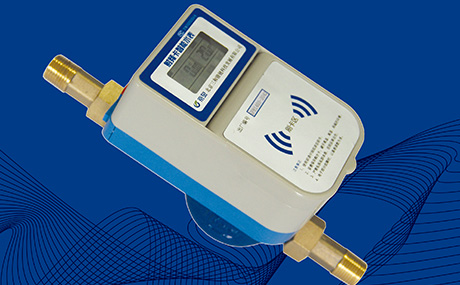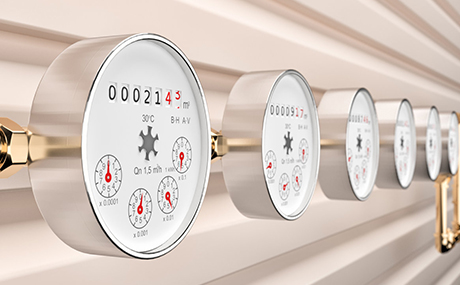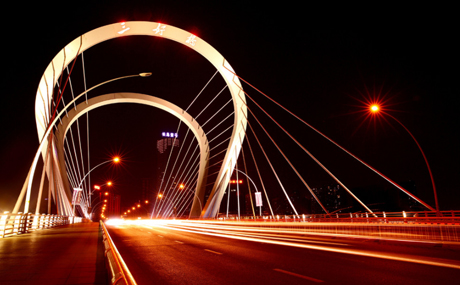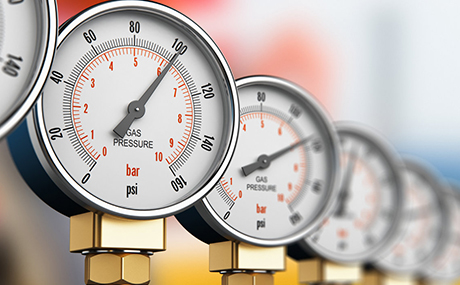Intelligent Water Meter Industry Analysis Report Market Demand Expanding
TIME:2019-07-18 VIEW: 7 FORM:Shenglong Technology
The term "smart city" is believed to be familiar to us all for a long time. Intelligent city is mainly composed of several links such as data collection, storage and analysis. With the development of Internet of Things, big data, cloud computing and other technologies, the traditional meter industry is also constantly affected by these new technologies. Some meter enterprises have seized this new opportunity to promote the intelligent transformation of traditional meters.

PREV : Intelligent Water Meter in Singapore
NEXT : LoRa Internet of Things Intelligent Water, no longer will anyone knock on the do

At present, China is vigorously promoting the construction of smart cities. According to relevant research reports, during the 13th Five-Year Plan period, China has promoted three batches of 277 smart cities pilot work, and achieved good results. During the 13th Five-Year Plan period, the market scale of smart city construction will reach 4 trillion yuan. Intelligent water meter, as a key link in the construction of intelligent city, will usher in huge market demand space.
Since the first water meter was invented in Britain in the 19th century, the water meter industry has a history of more than 100 years. At present, the total annual demand of global water meters is about 100 million units, mainly producing state-owned Germany, France, Italy, Britain, Poland, Czech Republic, China, Japan, the United States and so on. China has also become one of the world's largest water meter manufacturers. However, from the point of view of subdivision, China's water meter industry mainly concentrates on low-end products such as mechanical water meters. In the field of intelligent water meters, domestic enterprises account for a small proportion of the global market share.
According to the statistics compiled by "China Intelligent Water Meter Industry Trend Foresight and Investment Analysis Report" of Prospective Industry Research Institute, the penetration rate of intelligent water meters in China is about 20%, the annual production and sales volume is 15 million units, the corresponding market scale is only 5 billion yuan, and the technology, management level and development trend of intelligent water meter products are still lagging behind.
In recent years, the output of intelligent water meters in China has been growing at a rate of nearly 20%. With the commercialization of the new generation of Internet of Things and the production of NB-IoT intelligent water meters, the growth of intelligent water meters in China will be further promoted. The Outline of the 13th Five-Year Development Plan of Water Meter Industry in China points out that during the 13th Five-Year Plan period, the sales revenue of intelligent water meters (including intelligent application systems) should account for 40% of the total sales of water meters. With the improvement of policy, the market scale of smart water meters will also be steadily improved. It is expected that the future growth rate will reach 28%, the penetration rate of smart water meters will be close to 45% by 2020, and the annual shipment of 45 million units will exceed 17 billion.
The development of intelligent water meter industry can not be separated from the establishment of standard system and the advance of related standards. However, in our country, the water meter industry is different from the electricity meter industry. The national water system is relatively decentralized, lacking of unified management of enterprises similar to the State Grid, and its technical strength is not as strong as that of the power industry, so that there is no unified technical line and standard up to now.
In addition, at present, there are more than 600 water meter manufacturers in China, and the smart water meter manufacturers are far less than the above figures. The production of more than 100,000 water meters is expected to be only about 10. The mainstream manufacturers include Xintian Science and Technology, Sanchuan Stock Company, Chongqing Smart Water Meter and so on. Because of the high barrier of investment in the research and development of intelligent water meters, ordinary water meter enterprises with small workshops are unable to continuously update their technology, which is also one of the problems facing the development of intelligent water meters in China.
At present, the smart water meter in our country is mainly based on the low-end IC card smart water meter. The smart water meter with remote transmission function only accounts for about 20% of the whole smart water meter market. With the gradual increase of the permeability of intelligent water meters and the increase of the demand for intelligent water services, the proportion of intelligent remote water meters and intelligent water meters of the Internet of Things will gradually increase.
With the development of intelligent city construction and Internet of Things technology, intelligent water meter industry will develop steadily. According to industry forecasts, China will add more than 150 million intelligent water meters in the next five years, and the market will reach 40 billion yuan. In the future, the concentration of intelligent water meter industry will continue to increase with the competition. Intelligent water meter enterprises must seize the current good opportunities, improve technology level, develop forward-looking products including remote intelligent water meter and intelligent water meter of the Internet of Things, and cultivate the market of intelligent water meter deeply in order to remain invincible in the competition. (Reprint information for reference only)
Recommended news
-
 Please keep this history of super total water meter, water pipe antifreeze guide!TIME:2020-01-13VIEW:9The weather is freezingAre youMissing the warm days?I want to persuade the weather to be vigorousThe weather roar...
Please keep this history of super total water meter, water pipe antifreeze guide!TIME:2020-01-13VIEW:9The weather is freezingAre youMissing the warm days?I want to persuade the weather to be vigorousThe weather roar... -
 Next year, more than 20% of the built-up area of Shenyang will meet the requirements of sponge CityTIME:2019-12-26VIEW:7There is a city like this, it is like a sponge, it can make the rain breathe like a cell, it can make the ...
Next year, more than 20% of the built-up area of Shenyang will meet the requirements of sponge CityTIME:2019-12-26VIEW:7There is a city like this, it is like a sponge, it can make the rain breathe like a cell, it can make the ... -
 Intelligent gas meter is developing with the rapid development of gas industryTIME:2019-12-20VIEW:5The intelligent development of gas can be said to affect the heart of the whole industry. On the one hand, it...
Intelligent gas meter is developing with the rapid development of gas industryTIME:2019-12-20VIEW:5The intelligent development of gas can be said to affect the heart of the whole industry. On the one hand, it...
COPYRIGHT © SHENGLONGTECH ALL RIGHT RESERVED. 京ICP證000000号 WEB:XUANYUE







